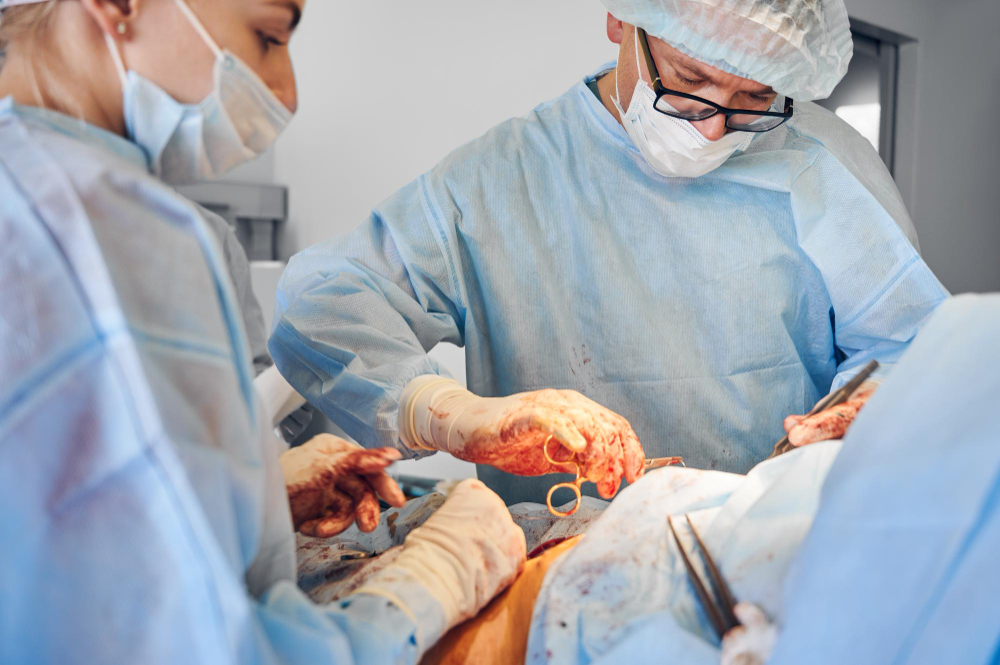
What is RPOC's Removal?
RPOC stands for Retained Products of Conception, which refers to the tissue that remains in the uterus after a miscarriage, abortion, or childbirth. RPOC's removal is a medical procedure performed to remove this retained tissue from the uterus. Retained products of conception can cause symptoms such as persistent vaginal bleeding, cramping, or pelvic pain and may increase the risk of infection or other complications if not promptly treated.
How is RPOC's Removal Performed?
RPOC's removal is typically performed as an outpatient procedure using minimally invasive techniques such as suction curettage or hysteroscopy. During the procedure, the physician accesses the uterus through the vagina and cervix and removes the retained tissue using specialized instruments. In some cases, medication may be given to help the uterus contract and expel the tissue. Minimally invasive techniques are preferred whenever possible to minimize discomfort and recovery time.
Who is a Candidate for RPOC's Removal?
Women who have experienced a miscarriage, abortion, or childbirth and are experiencing symptoms such as persistent vaginal bleeding, cramping, or pelvic pain may be candidates for RPOC's removal. A thorough evaluation by a healthcare provider is necessary to determine candidacy and discuss the potential risks and benefits of the procedure. Factors such as the size and location of the retained tissue, the presence of infection, and the patient's overall health will also be considered in the decision-making process.
What is the Recovery Process Like After RPOC's Removal?
The recovery process after RPOC's removal varies depending on the extent of the retained tissue and individual healing factors. Patients may experience some cramping, spotting, or vaginal discharge in the days following the procedure. Pain medication, antibiotics, and instructions for caring for the uterus may be provided to promote healing and prevent complications. Most patients can resume normal activities within a few days after RPOC's removal, although some procedures may require a longer recovery period.
What are the procedure after surgery?
Rest and Limit Activity : Avoid strenuous activities, heavy lifting, and vigorous exercise for the recommended period.
Keep the Area Clean : Gently clean the surgical area with water and mild soap as directed by your surgeon. Pat the area dry with a clean towel, and avoid rubbing or scrubbing.
Take Prescribed Medications : Take any prescribed pain medications, antibiotics, or other medications as instructed by your surgeon to manage pain and prevent infection.
Avoid Sexual Activity : Refrain from sexual intercourse and other sexual activities until your surgeon advises it is safe to do so. This typically takes several weeks to a month or more, depending on individual healing.
Wear Loose Clothing : Wear loose-fitting clothing, preferably cotton underwear, to minimize friction and promote airflow to the surgical area.
Attend Follow-Up Appointments : Keep all scheduled follow-up appointments with your surgeon to monitor your healing progress and address any concerns or complications promptly.
Avoid Tampons and Menstrual Cups : Refrain from using tampons and menstrual cups during your recovery period to prevent irritation and infection.
Stay Hydrated and Eat Nutritious Foods : Drink plenty of water and eat a balanced diet rich in vitamins and nutrients to support healing and boost your immune system.
Why Choose VMG Hospital for RPOC's Removal?
VMG Hospital in Hisar, Haryana, offers expert care and advanced treatment options for women requiring RPOC's removal. Our team of experienced gynecologists and minimally invasive surgeons is dedicated to providing personalized care and optimal outcomes for each patient. With state-of-the-art facilities, cutting-edge technology, and a patient-centered approach, VMG Hospital is committed to delivering the highest quality of care and improving the lives of women with gynecological conditions.